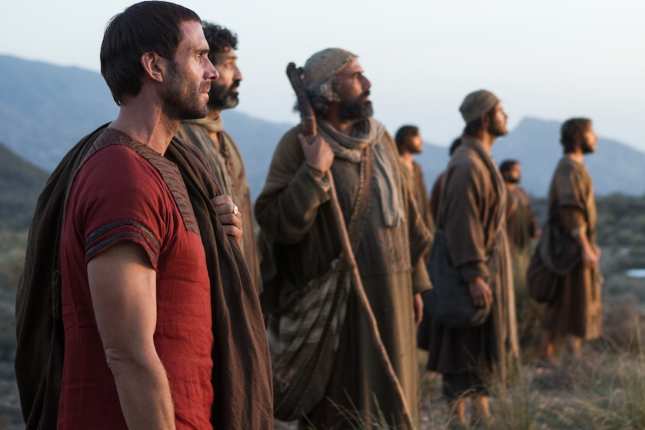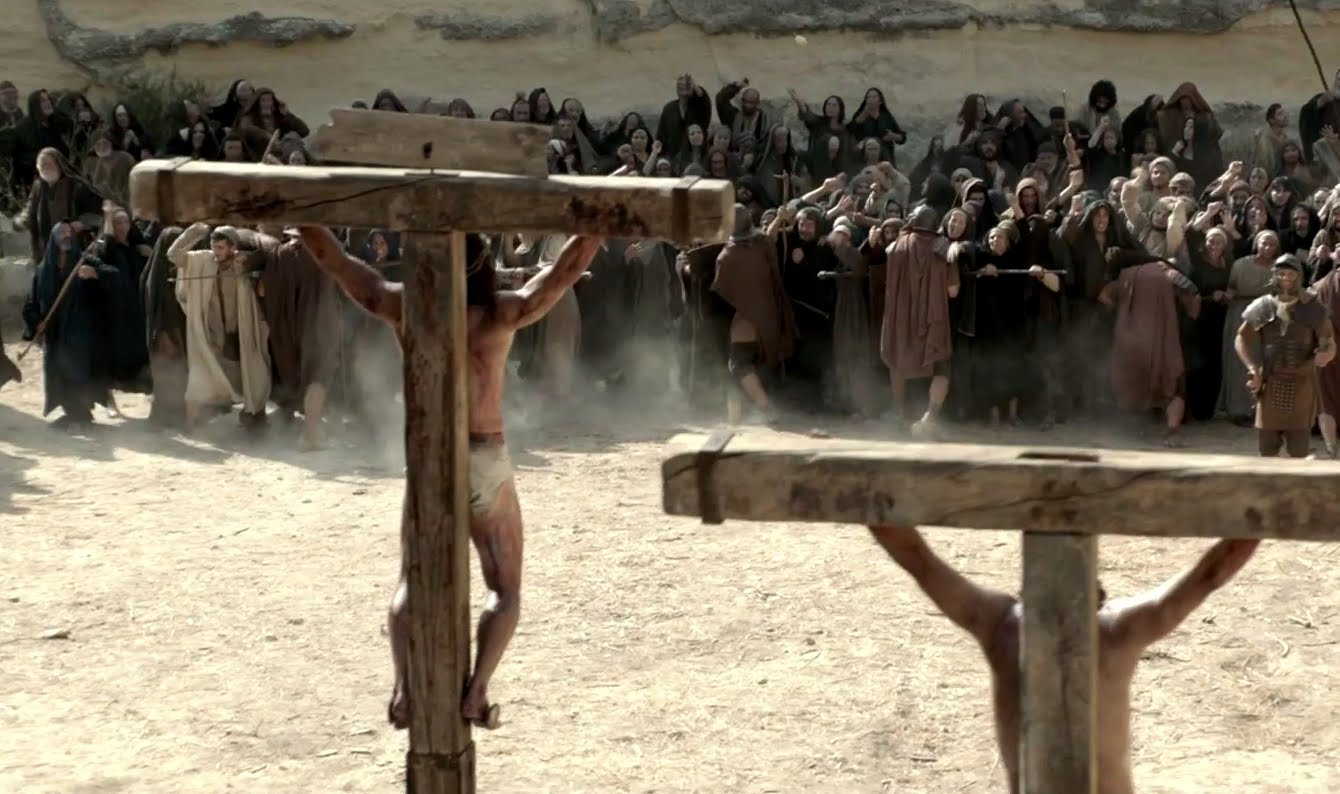Set to open just weeks before Easter, the groundbreaking Biblical epic Risen examines the crucifixion and resurrection of Jesus Christ like it's never been seen before -- from the perspective of an unbelieving soldier.
Starring Joseph Fiennes, Tom Felton, Peter Firth, and Cliff Curtis, Risen isn't your typical "Jesus" movie: the film is seen through the eyes of Clavius, an ambitious Roman tribune, who is charged by Pontius Pilate to investigate the rumors of the risen Jesus and locate his body in an attempt to prevent an uprising in Jerusalem.
"It's a story we know and love but from a completely different angle," Rich Peluso, senior vice president of AFFIRM Films, a division of Sony Pictures Entertainment, told The Gospel Herald in an exclusive interview. "We all know the story of Jesus meeting up with Cleopas on the road, but a few miles away in Jerusalem Caiaphas, the High Priest, and Pilate had to be wondering where the body went and tried to squash what they viewed as an uprising. Risen takes you through that journey on the other side of the story while still glimpsing the Gospel story."
Arriving in theaters February 19, Risen remains faithful to Scripture while presenting an epic cinematic event, ensuring it will inspire and encourage both faith-based and secular audiences.
"For Christians, it doesn't feel tired at all; it's a unique experience to see the story that we know and love through the eyes of a non-believer that's on his own journey," Peluso said of the upcoming film. "For the unchurched, it is probably the most accessible story of the life of Christ on film. You can come into the story and experience it without feeling like someone is trying to preach at you, because the lead character is so skeptical about what's going on. It really is a manhunt to disprove the rumor of this risen man; you get pulled into this manhunt thriller."
To learn more about Risen, visit www.risen-movie.com.

Below is the exclusive interview with Rich Peluso
GH: In your new film, Risen, filmmakers cast the story of Jesus' death, resurrection and ascension from a skeptic's point of view. Tell me what attracted you to this story in particular and what inspired you to create this film from such a unique point of view?
RP: People had asked me a lot about whether AFFIRM Films would do a biblical epic, and we weren't very interested in doing the typical rope and sandals movie. Not that we don't love them, but it's hard to get excited about doing something that other people have already done so well.
We first came across the script for "Risen" in 2007, and we couldn't make it work at the time. When it popped up again from producer Mickey Liddell, it had been transformed into this new perspective being told through the eyes of an unbelieving military tribune, and it made it exciting for us because it's a story we know and love but from a completely different angle.

GH: Why is this story still so important today?
RP: The same reason that we continue to read Scripture each day. Encountering the stories of when God intersects with humankind holds endless blessings and encouragement. We're to remember this and experience it afresh. That's one thing we're hearing from Christians that encounter this story; it feels very fresh and new to them, and they're picking up insights and experiences they'd not had before in engaging the story. Like other great lessons and stories and our culture and our faith, it's important to relive the lessons who grew up with, because they continue to hold things for us in our life.
GH: Risen picks up where Passion of the Christ left off. Given the Passion's success, why was it 12 years before a sequel was created?
RP: After the success of "Passion of the Christ" in 2004, there was an abundance of scripts that were being shopped around that were telling the rest of that story. I think none of them were very interesting to us, and the fact that nothing had been done is an indication they weren't that interesting to others, either. I think it took the right time and story people involved to bring this into a big epic story on screen. There certainly have been some amazingly good television programs and TV movies, but a big cinematic film is just a different experience.
GH: In the last few years we have seen a proliferation of faith-themed movies -- a number of which you've worked on, including Soul Surfer, Courageous, Heaven is for Real, and recently, War Room. Do you think the success of these films shows that Christians are an underserved audience?
RP: I believe they are. Based on Pew Research and Barna research, there's over 140 million Americans that go to a Christian church every Sunday. That's more than watched the Super Bowl and voted in the presidential election, that happens every Sunday. That doesn't mean that everything the Christian community wants and will consume has to be thickly laid on with their faith or Biblical worldview, but it does mean that when you provide a great story, great entertainment that's in alignment with their faith, you'll have a wave of support that surprises Hollywood. A key ingredient is great entertainment and great production. I believe that Christians want to see great movies like everyone else, they don't want to see a Christian movie because they feel like they have to support it if it's not very good. That's why you see mixed results with films that hit the market.
GH: You are the vice president of AFFIRM Films, which is focused on the development of faith-based and inspirational films. Over the past few years, how has the demand for faith-based films changed and grown? Do you find that Hollywood is more accepting of such films than it was ten, twenty years ago?
RP: Certainly. Any trend or news story that picks up attention, people will chase it. We just had "War Room" come out this fall, and it did incredibly well. I can tell you that any time we have a big release come out, the number of Hollywood producers and writers increases tenfold.
GH: Is it difficult being a Christian in the predominantly secular industry of filmmaking? How does your faith affect your work?
RP: I will say that it's been a long time I've been doing this, not specifically at AFFIRM films, but I spent a long time at EMI music group, which is now called Capitol Christian Music, working with artists like Switchfoot, Chris Tomlin and Tobymac. Part of what I did was bring that music into the secular distribution and marketing world, and most of the people that I've worked with weren't believers.
Transitioning into Sony Pictures was very natural; it kind of puts you in a spot where you have to be really careful how you speak and act and how you treat people, because there are a lot of people watching you.
So, that's challenging and there's an accountability built into that. There are wonderful people I work with, and what I love about the support Sony Pictures gives us is that they don't interfere with the content or message, as they don't with any other film that comes through the studio. They make sure that there's an audience for it and that the craft is strong, that's there's strong filmmakers, producers and directors and talent. From Sony's perspective, if there's great storytelling, people involved, with a track record and an audience, they're fine. It gives us the freedom to utilize Sony's resources and create great faith-based, inspiring and uplifting films.

















